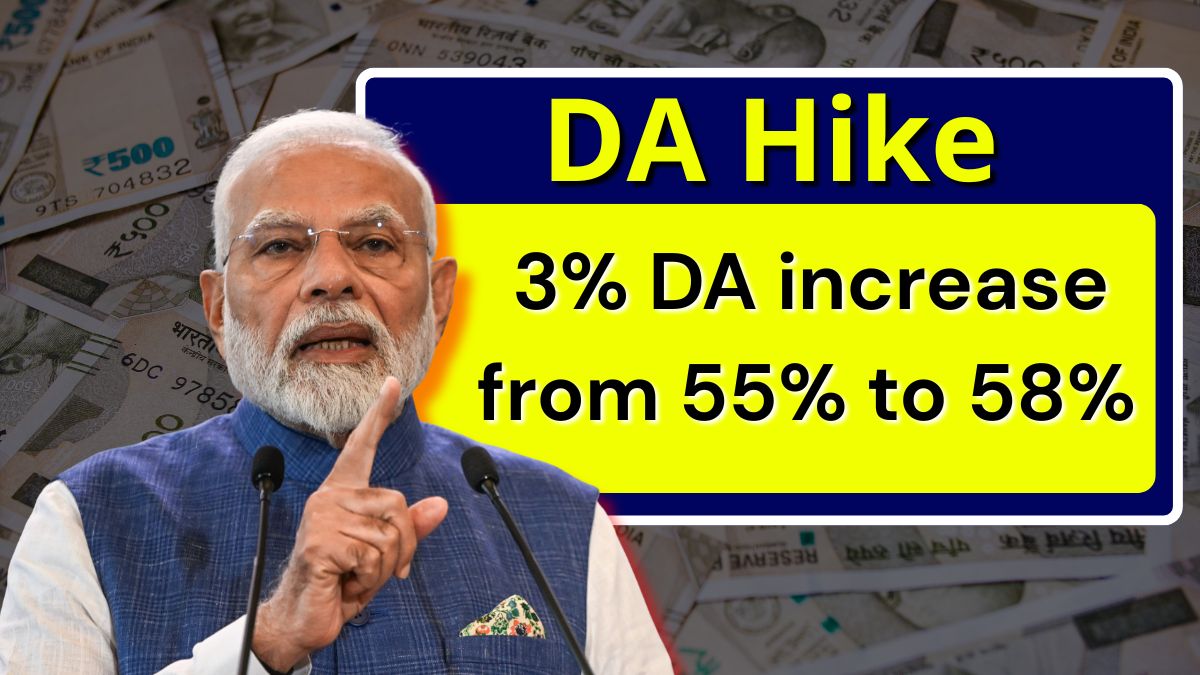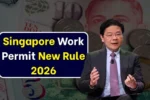For lakhs of central government employees, this festive season brought not just lights and sweets, but also some truly bright news. The Indian government has officially announced the 8th Pay Commission, signaling a new era of salary revisions and benefits.
And that’s not all — starting October 1st, employees received a 3% Dearness Allowance (DA) hike, increasing their DA from 55% to 58%. This timely raise came as a Diwali gift under the 7th Pay Commission, but now everyone’s asking the same question — when will the 8th Pay Commission actually be implemented?
What’s the Latest on the 8th Pay Commission?
On January 16, 2025, Prime Minister Narendra Modi officially announced the formation of the 8th Pay Commission. Its main task: to review and recommend fair revisions in salaries, pensions, and allowances for central government employees and pensioners.
While this announcement has raised hopes, there’s still some waiting to do. According to media reports, it might take two to three years before the new salary structure is implemented. That means, if the usual timeline is followed, employees could see their revised pay by 2027.
Still, for millions of employees who’ve seen the last major salary revision back in 2016, this is a long-awaited step forward.
Looking Back: The 7th Pay Commission Timeline
To understand what’s coming, let’s look at how things worked the last time.
- 7th Pay Commission setup: 2014
- Report submitted: 2015
- Implemented: 2016
So if the 8th Pay Commission follows a similar pattern, we can expect:
- Recommendations by 2026
- Implementation starting 2027
That gives the government enough time to analyze inflation, cost of living, and overall fiscal health — while employees can prepare for what’s likely to be a significant jump in income.
How Much Salary Hike Can Employees Expect?
While there’s no official confirmation yet, early estimates suggest that the minimum basic pay could increase from ₹18,000 to ₹26,000 per month under the new structure. That’s a jump of over 40%.
Here’s a quick comparison:
| Pay Commission | Minimum Basic Pay | Year Implemented |
|---|---|---|
| 6th Pay Commission | ₹7,000 | 2006 |
| 7th Pay Commission | ₹18,000 | 2016 |
| 8th Pay Commission (expected) | ₹26,000 | 2027 (expected) |
If this pattern continues, employees at all levels could see a noticeable rise in take-home salary, especially with revised fitment factors, DA recalibration, and house rent allowances (HRA) adjustments.
How the DA Hike Fits In
The Dearness Allowance (DA) is revised twice a year to offset inflation’s impact on employee purchasing power. The recent 3% DA increase — from 55% to 58% — was a much-needed cushion against rising prices.
Even though this DA revision is under the 7th Pay Commission, it sets the stage for the next big leap. When the 8th Pay Commission comes into play, DA will again be reset and start fresh from zero, gradually increasing over time.
Think of it this way — the current DA hikes are like “previews” of the bigger financial boost to come.
Why the 8th Pay Commission Matters
Every Pay Commission is set up once every 10 years to ensure government salaries stay in line with inflation, lifestyle changes, and market standards.
The 8th Pay Commission is expected to benefit around:
- 50 lakh (5 million) central government employees
- 65 lakh (6.5 million) pensioners
That’s more than 11 million families directly impacted — and millions more indirectly through spending and consumption growth.
Economists believe that implementing the 8th Pay Commission could also boost domestic demand, especially in smaller cities, as higher salaries often lead to increased spending on housing, education, and goods.
So, it’s not just good news for employees — it could be a mini push for the entire Indian economy
What Employees Should Do Now
While the final pay revision may take a couple of years, this is a good time for employees to plan ahead:
- Track updates from the Department of Expenditure and Finance Ministry.
- Use pay commission calculators once draft recommendations are released.
- Plan financial goals like home loans or retirement based on expected increments.
The good part? With DA hikes continuing every six months, employees won’t be left behind even as they wait for the 8th Pay Commission rollout.
Frequently Asked Questions
1. When will the 8th Pay Commission be implemented?
Based on previous patterns, the 8th Pay Commission’s recommendations could be implemented by 2027, though the final decision will depend on government approval and budget priorities.
2. How much salary increase can employees expect?
The minimum basic salary is likely to rise from ₹18,000 to ₹26,000, though official confirmation will come only after the commission submits its report.
3. How many people will benefit from the 8th Pay Commission?
Approximately 50 lakh government employees and 65 lakh pensioners across India are expected to benefit from the new pay structure.



